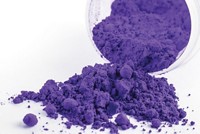Advertisement
Grab your lab coat. Let's get started
Welcome!
Welcome!
Create an account below to get 6 C&EN articles per month, receive newsletters and more - all free.
It seems this is your first time logging in online. Please enter the following information to continue.
As an ACS member you automatically get access to this site. All we need is few more details to create your reading experience.
Not you? Sign in with a different account.
Not you? Sign in with a different account.
ERROR 1
ERROR 1
ERROR 2
ERROR 2
ERROR 2
ERROR 2
ERROR 2
Password and Confirm password must match.
If you have an ACS member number, please enter it here so we can link this account to your membership. (optional)
ERROR 2
ACS values your privacy. By submitting your information, you are gaining access to C&EN and subscribing to our weekly newsletter. We use the information you provide to make your reading experience better, and we will never sell your data to third party members.
Chemical Regulation
US EPA delays PIP (3:1) ban over supply chain concerns
Agency plans to propose new rules for 5 persistent, bioaccumulative, and toxic chemicals
by Britt E. Erickson
September 7, 2021
| A version of this story appeared in
Volume 99, Issue 33

The US Environmental Protection Agency will not enforce a ban on phenol, isopropylated, phosphate (3:1) [PIP (3:1)] until at least March 8, 2022 “to ensure that supply chains are not disrupted for key consumer and commercial goods,” the agency announced Sept. 3. PIP (3:1) is used as a flame retardant, plasticizer, and additive in a wide range of products, including electronics and automobiles.
The move comes after importers, distributors, and retailers of electronic goods and other products raised concerns about the ban. They claim that identifying PIP (3:1) in those articles is challenging and that it will take years to survey the complex global supply chain.
The EPA banned the processing and distribution of PIP (3:1) and four other persistent, bioaccumulative, and toxic (PBT) chemicals in January 2021. Those four chemicals are:
Decabromodiphenyl ether, a flame retardant
Hexachlorobutadiene, found in rubber and lubricants and used as a solvent
Pentachlorothiophenol, used to soften rubber
2,4,6-Tris(tert-butyl)phenol, a fuel or lubricant additive
After Congress gave the EPA new authorities under 2016 revisions to the Toxic Substances Control Act, the agency took quick action to reduce exposures to the five chemicals because of their high toxicity and persistence in the environment. Instead of conducting risk evaluations for the substances, the EPA chose to immediately control their uses.
The EPA is now planning to propose new rules for all five PBT chemicals in the spring of 2023 “to further reduce exposures, promote environmental justice, and better protect human health and the environment,” the agency said. In the meantime, the rules remain in effect, except for the rule on PIP (3:1).
The EPA is not opposed to extending the ban on PIP (3:1) beyond March 8, 2022, but first it wants industry to provide information on specific uses of PIP (3:1) throughout the supply chain, steps taken to identify substitute chemicals for those uses, and an estimate of any additional time required to gather such information.
Lawyers who work closely with the chemical industry are questioning whether the EPA fully understands the challenges in identifying whether PIP (3:1) is present in every part of a device as complex as a computer, particularly when many parts are imported.




Join the conversation
Contact the reporter
Submit a Letter to the Editor for publication
Engage with us on Twitter